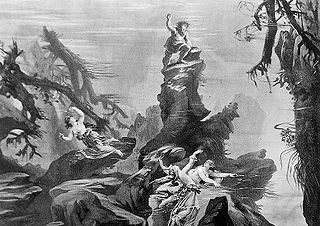
Der Ring des Nibelungen, WWV 86, is a cycle of four German-language epic music dramas composed by Richard Wagner. The works are based loosely on characters from Germanic heroic legend, namely Norse legendary sagas and the Nibelungenlied. The composer termed the cycle a "Bühnenfestspiel", structured in three days preceded by a Vorabend. It is often referred to as the Ring cycle, Wagner's Ring, or simply The Ring.

Das Rheingold, WWV 86A, is the first of the four music dramas that constitute Richard Wagner's Der Ring des Nibelungen. It was performed, as a single opera, at the National Theatre Munich on 22 September 1869, and received its first performance as part of the Ring cycle at the Bayreuth Festspielhaus, on 13 August 1876.
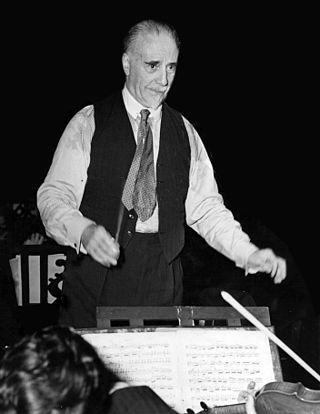
Sir Thomas Beecham, 2nd Baronet, CH was an English conductor and impresario best known for his association with the London Philharmonic and the Royal Philharmonic orchestras. He was also closely associated with the Liverpool Philharmonic and Hallé orchestras. From the early 20th century until his death, Beecham was a major influence on the musical life of Britain and, according to the BBC, was Britain's first international conductor.

The Bayreuth Festspielhaus or Bayreuth Festival Theatre is an opera house north of Bayreuth, Germany, built by the 19th-century German composer Richard Wagner and dedicated solely to the performance of his stage works. It is the venue for the annual Bayreuth Festival, for which it was specifically conceived and built. Its official name is Richard-Wagner-Festspielhaus.

Albert Coates was an English conductor and composer. Born in Saint Petersburg, where his English father was a successful businessman, he studied in Russia, England and Germany, before beginning his career as a conductor in a series of German opera houses. He was a success in England conducting Wagner at the Royal Opera House, Covent Garden in 1914, and in 1919 was appointed chief conductor of the London Symphony Orchestra.
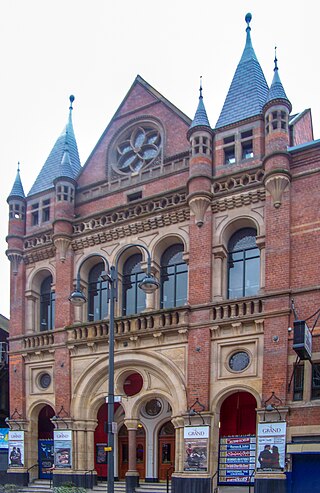
Opera North is an English opera company based in Leeds. The company's home theatre is the Leeds Grand Theatre, but it also presents regular seasons in several other cities, at the Theatre Royal, Nottingham, the Lowry Centre, Salford Quays and the Theatre Royal, Newcastle. The company's orchestra, the Orchestra of Opera North, regularly performs and records in its own right. Operas are performed either in English translation or in the original language of the libretto, in the latter case usually with surtitles.

Karl Eduard Maria Elmendorff was a German opera conductor.

Karl Rankl was a British conductor and composer who was of Austrian birth. A pupil of the composers Schoenberg and Webern, he conducted at opera houses in Austria, Germany and Czechoslovakia until fleeing from the Nazis and taking refuge in England in 1939.
Mary Jarred was an English opera singer of the mid-twentieth century. She is sometimes classed as a mezzo-soprano and sometimes as a contralto.
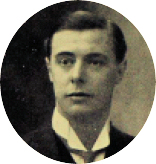
Percy Pitt was an English organist, conductor, composer, and Director of Music of the BBC from 1924 to 1930.

John Coates was a leading English tenor, who sang in opera and oratorio and on the concert platform. His repertoire ranged from Bach and Purcell to contemporary works, and embraced the major heldentenor roles in Richard Wagner's operas. For more than 40 years, with only a four-year interruption for military service during World War I, he overcame the limitations of a voice that was not naturally large by impressing listeners with his intense artistic expression, lively diction, musical versatility and memorable stage presence.

Frederic William Austin was an English baritone singer, a musical teacher and composer in the period 1905–30. He is best remembered for his restoration and production of The Beggar's Opera by John Gay and Johann Christoph Pepusch, its sequel, Polly, in 1920–23, and for his popularization of the melody of the carol The Twelve Days of Christmas. Austin was the older brother of the composer Ernest Austin (1874–1947).

Robert Radford was a British bass singer who made his career entirely in the United Kingdom, participating in concerts and becoming one of the foremost performers of oratorios and other sacred music. He had equally great success in a broad spectrum of operatic roles, ranging from Wagner to Gilbert and Sullivan, due to the strength and burnished beauty of his well-trained voice.
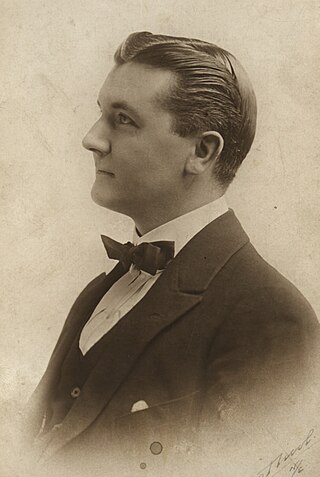
Thomas Quinlan, was a musical impresario, best known for founding the Quinlan Opera Company.
Marjorie Gwendolen Thomas was an English opera and oratorio singer for almost three decades.

Karin Branzell was a Swedish operatic contralto, who had a prominent career at the Metropolitan Opera, New York, and in Europe. Her very wide range enabled her to sing both contralto roles and the occasional soprano role. She was particularly noted for her singing of the music of Richard Wagner, in roles such as Ortrud (Lohengrin), Venus (Tannhäuser), Erda, Brangäne, and Brunnhilde. She was considered on a par with Margarete Klose and Kerstin Thorborg as a Wagnerian contralto. Amneris (Aida), Dalila, Herodias (Salome), and Clytemnestra (Elektra) were among her other renowned roles.

The British National Opera Company presented opera in English in London and on tour in the British provinces between 1922 and 1929. It was founded in December 1921 by singers and instrumentalists from Sir Thomas Beecham's Beecham Opera Company (1915–1920), which was disbanded when financial problems over buying The Bedford Estate forced Beecham to withdraw from the music scene for a short period. The new venture was financed by the issue of 40,000 preference shares at £1 each. Among the musicians who met at the inaugural meeting of the new enterprise at the Queen's Hall were Sir Alexander Mackenzie, Sir Charles Stanford, Harry Plunket Greene, Walter Hyde, Aylmer Buesst and Sir Henry Hadow. The new company bought the entire assets of the Beecham company, comprising the scenery, costumes, scores, instruments and performing rights for 48 operas.
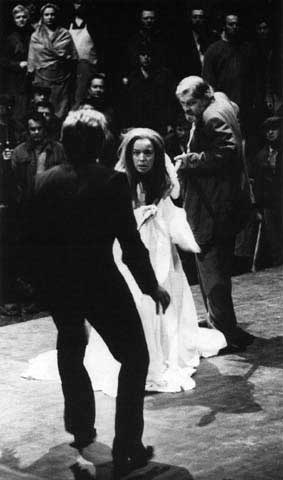
The Jahrhundertring was the production of Richard Wagner's Ring Cycle, Der Ring des Nibelungen, at the Bayreuth Festival in 1976, celebrating the centenary of both the festival and the first performance of the complete cycle. The festival was directed by Wolfgang Wagner and the production was created by the French team of conductor Pierre Boulez, stage director Patrice Chéreau, stage designer Richard Peduzzi, costume designer Jacques Schmidt and lighting designer André Diot. The cycle was shown first in 1976, then in the following years until 1980. It was filmed for television in 1979 and 1980. While the first performance caused "a near-riot" for its brash modernity, the staging established a standard, termed Regietheater, for later productions.
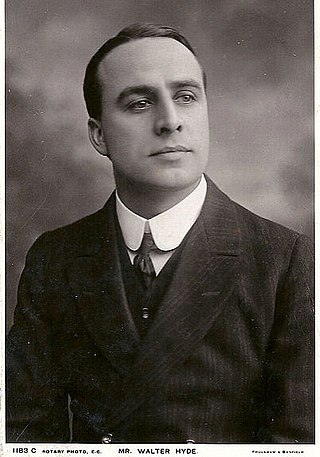
Walter Hyde was a British tenor, actor and teacher of voice whose career spanned genres from musical theatre to grand opera. In 1901 he sang Borrachio in the premiere of Stanford's Much Ado About Nothing and soon appeared in London's West End in light opera and Edwardian musical comedy. He appeared regularly at the Royal Opera House in Covent Garden between 1908 and 1924, becoming known for roles in Wagner operas, among others, both in Britain and America. He was also in demand as a concert artist. In his later years he was Professor of Voice at the Guildhall School of Music where his students included Geraint Evans and Owen Brannigan.

Caroline Gertrude Hatchard was a British soprano, musical theatre and opera singer of the 20th-century who was the first English-born and trained soprano to be engaged by the Royal Opera House in Covent Garden where she played Sophie in the British premiere of Strauss's Der Rosenkavalier on 29 January 1913 with Thomas Beecham conducting.



















